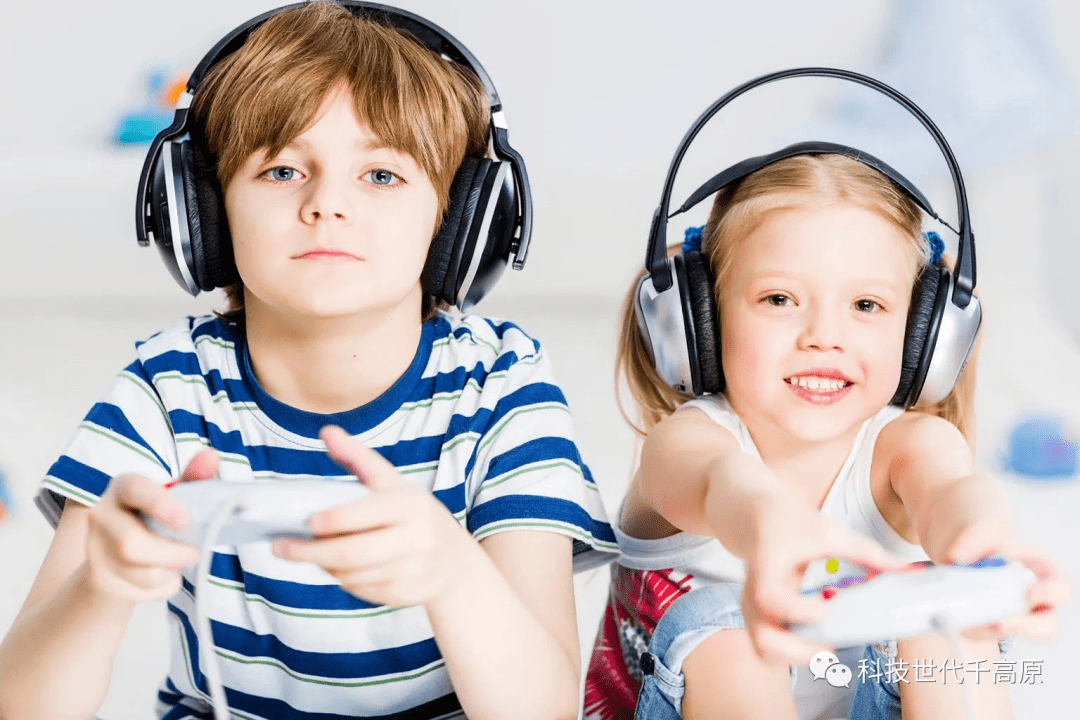大脑发育:视频游戏真的能让孩子更聪明吗?
根据一项新的研究,与从未玩过电子游戏的儿童相比,每天玩电子游戏三个小时或更长时间的儿童在涉及冲动控制和工作记忆的认知技能测试中表现更好。
视频游戏可能与儿童更好的认知表现有关
需要进一步的研究来分析视频游戏对发育中的大脑的潜在益处和危害。

与从未玩过电子游戏的儿童相比,每天玩电子游戏三个小时或更长时间的儿童在包括冲动控制和工作记忆在内的认知技能测试中表现更好。这是根据最近在JAMA Network Open上发表的一项对近 2,000 人的研究得出的。对于这项研究,数据分析来自正在进行的青少年大脑认知发展 (ABCD) 研究,该研究得到了美国国家药物滥用研究所 (NIDA) 和美国国立卫生研究院 (NIH) 其他实体的支持。
NIDA 主任 Nora Volkow 医学博士说:“这项研究增加了我们对玩电子游戏和大脑发育之间关系的理解,许多研究已经将电子游戏与行为和心理健康问题联系起来。这项研究表明,这种流行的消遣也可能带来认知益处,值得进一步研究。”
许多研究已经调查了视频游戏和认知行为之间的关系。然而,这些关联背后的神经生物学机制尚不清楚。只有少数神经影像学研究解决了这个话题,而且这些研究的样本量很小,参与者不到 80 人。
为了解决这一研究空白,科学家们分析了儿童在 9 岁和 10 岁时进入 ABCD 研究时获得的数据。佛蒙特大学伯灵顿分校的研究小组检查了来自更大研究队列中近 2,000 名参与者的调查、认知和脑成像数据。他们将这些孩子分成两组,一组报告根本不玩电子游戏,另一组报告说每天玩电子游戏三个小时或更长时间。之所以选择此阈值,是因为它超过了美国儿科学会的筛查时间指南,它建议年龄较大的孩子每天玩视频游戏的时间限制为一到两个小时。对于每一组,研究人员评估了孩子们在两项任务上的表现,这些任务反映了他们控制冲动行为和记忆信息的能力。他们还分析了孩子们在执行任务时的大脑活动。
研究人员发现,每天玩电子游戏三个小时或更长时间的孩子在认知任务上比从不玩的孩子更快、更准确。他们还发现,在两组之间观察到的认知功能差异伴随着大脑活动的差异。功能性核磁共振 (fMRI) 脑成像分析表明,每天玩电子游戏三个或更多小时的儿童在与注意力和记忆力相关的大脑区域中的大脑活动高于那些从未玩过的儿童。与此同时,那些每天至少玩 3 小时电子游戏的孩子在与认知要求更高的任务相关的额脑区域表现出更多的大脑活动,而在与视觉相关的大脑区域则表现出较少的大脑活动。
根据科学家的说法,这些模式可能源于在玩电子游戏时练习与冲动控制和记忆相关的任务,这可能对认知要求很高,并且这些变化可能会提高相关任务的表现。此外,报告玩电子游戏的儿童视觉区域的活动相对较低,这可能反映了由于通过电子游戏反复练习,大脑的该区域在视觉处理方面可能变得更有效率。
尽管之前的研究报告了视频游戏与抑郁、暴力和攻击行为增加之间的关联,但本研究并未发现这种情况。尽管与不玩电子游戏的儿童相比,每天玩电子游戏三个或更多小时的儿童确实倾向于报告更高的心理健康和行为问题,但研究人员发现,这种关联在统计学上并不显着。换句话说,作者不能排除这种趋势是否反映了一种真正的关联,或者仅仅是偶然的结果。他们指出,随着孩子的成熟,这将是继续跟踪和理解的重要措施。
此外,研究人员强调,这项横断面研究不允许进行因果分析,只能进行关联分析。因此,擅长这些类型认知任务的孩子可能会选择玩电子游戏。作者还强调,他们的发现并不意味着孩子们应该在电脑、手机或电视上花费无限的时间,结果可能在很大程度上取决于孩子们从事的特定活动。例如,他们假设特定类型的视频游戏,如动作冒险、解谜、体育或射击游戏,可能对神经认知发展产生不同的影响。然而,该研究并未评估所玩视频游戏类型的这种特异性水平。
“虽然我们不能说经常玩电子游戏是否会导致出色的神经认知表现,但这是一个令人鼓舞的发现,我们必须在这些儿童过渡到青春期和青年期时继续对其进行调查,”Bader Chaarani 博士说。,佛蒙特大学精神病学助理教授,该研究的主要作者。“如今,许多父母都担心电子游戏对孩子健康和发育的影响,随着这些游戏在年轻人中不断普及,我们必须更好地了解此类游戏可能产生的积极和消极影响。”
通过 ABCD 研究,研究人员将能够对相同的孩子在成年早期进行类似的分析,看看视频游戏行为的变化是否与认知技能、大脑活动、行为和心理健康的变化有关。纵向研究设计和综合数据集还将使他们能够更好地考虑儿童家庭和环境中可能影响其认知和行为发展的各种其他因素,例如运动、睡眠质量和其他影响。
ABCD 研究是美国同类研究中规模最大的一项,它正在追踪近 12,000 名青年成长为年轻人的过程。研究人员定期使用磁共振成像 (MRI) 测量参与者的大脑结构和活动,并收集心理、环境和认知信息以及生物样本。该研究的目的是了解影响大脑、认知和社会情感发展的因素,为干预措施的发展提供信息,以改善年轻人的生活轨迹。
参考文献:Bader Chaarani 博士的“视频游戏与儿童认知能力的关联”;约瑟夫·奥提加拉,MS;袁德康,硕士;汉娜·洛索博士;Alexandra Potter 博士和 Hugh P. Garavan 博士,2022 年 10 月 24 日,JAMA 网络开放。
DOI: 10.1001/jamanetworkopen.2022.35721

Brain Development: Does Video Gaming Actually Make Kids Smarter?
According to new research, kids who played video games for three hours per day or more performed better on cognitive skills tests involving impulse control and working memory compared to children who had never played video games.
Video Gaming May Be Associated With Better Cognitive Performance in Children
Additional research is necessary to parse the potential benefits and harms of video games on the developing brain.
Children who reported playing video games for three hours or more per day performed better on cognitive skills tests involving impulse control and working memory compared to children who had never played video games. This is according to a study of nearly 2,000 that was published recently in JAMA Network Open . For this research, data was analyzed from the ongoing Adolescent Brain Cognitive Development (ABCD) Study, which is supported by the National Institute on Drug Abuse (NIDA) and other entities of the National Institutes of Health (NIH).
“This study adds to our growing understanding of the associations between playing video games and brain development,” said NIDA Director Nora Volkow, M.D. “Numerous studies have linked video gaming to behavior and mental health problems. This study suggests that there may also be cognitive benefits associated with this popular pastime, which are worthy of further investigation.”
A number of studies have already investigated the relationship between video gaming and cognitive behavior. However, the neurobiological mechanisms underlying the associations are not well understood. Only a handful of neuroimaging studies have addressed this topic, and the sample sizes for those studies have been small, with fewer than 80 participants.
To address this research gap, scientists analyzed data obtained when children entered the ABCD Study at ages 9 and 10 years old. The research team, at the University of Vermont, Burlington, examined survey, cognitive, and brain imaging data from nearly 2,000 participants from within the bigger study cohort. They separated these children into two groups, those who reported playing no video games at all and those who reported playing video games for three hours per day or more. This threshold was selected specifically because it exceeds theAmerican Academy of Pediatrics screen time guidelines, which recommend that video gaming time for older children be limited to one to two hours per day. For each group, the researchers evaluated the children’s performance on two tasks that reflected their ability to control impulsive behavior and to memorize information. They also analyzed the children’s brain activity while performing the tasks.
The investigators discovered that the children who reported playing video games for three or more hours per day were faster and more accurate on both cognitive tasks than those who never played. They also found that the differences in cognitive function observed between the two groups were accompanied by differences in brain activity. Functional MRI (fMRI) brain imaging analyses showed that children who played video games for three or more hours per day showed higher brain activity in regions of the brain associated with attention and memory than those who never played. At the same time, those children who played at least three hours of video games per day showed more brain activity in frontal brain regions that are associated with more cognitively demanding tasks and less brain activity in brain regions related to vision.
According to the scientists, these patterns may arise from practicing tasks related to impulse control and memory while playing video games, which can be cognitively demanding, and that these changes may lead to improved performance on related tasks. Furthermore, the comparatively low activity in visual areas among children who reported playing video games may reflect that this area of the brain may become more efficient at visual processing as a result of repeated practice through video games.
Although previous research studies have reported associations between video gaming and increases in depression, violence, and aggressive behavior, this study did not find that to be the case. Though children who reported playing video games for three or more hours per day did tend to report higher mental health and behavioral issues compared to children who played no video games, the researchers found that this association was not statistically significant. In other words, the authors could not rule out whether this trend reflected a true association or was simply the result of chance. They note that this will be an important measure to continue to track and understand as the children mature.
Additionally, the researchers stress that this cross-sectional study does not allow for cause-and-effect analyses, only an association. Therefore, it could be that children who are good at these types of cognitive tasks may choose to play video games. The authors also emphasize that their findings do not mean that children should spend unlimited time on their computers, mobile phones, or TVs, and that the outcomes likely depend largely on the specific activities children engage in. For example, they hypothesize that the specific genre of video games, such as action-adventure, puzzle-solving, sports, or shooting games, may have different effects on neurocognitive development. However, this level of specificity on the type of video game played was not assessed by the study.
“While we cannot say whether playing video games regularly caused superior neurocognitive performance, it is an encouraging finding, and one that we must continue to investigate in these children as they transition into adolescence and young adulthood,” said Bader Chaarani, Ph.D., assistant professor of psychiatry at the University of Vermont and the lead author on the study. “Many parents today are concerned about the effects of video games on their children’s health and development, and as these games continue to proliferate among young people, it is crucial that we better understand both the positive and negative impact that such games may have.”
Through the ABCD Study, researchers will be able to conduct similar analyses for the same children over time into early adulthood, to see if changes in video gaming behavior are linked to changes in cognitive skills, brain activity, behavior, and mental health. The longitudinal study design and comprehensive data set will also enable them to better account for various other factors in the children’s families and environment that may influence their cognitive and behavioral development, such as exercise, sleep quality, and other influences.
The ABCD Study, the largest of its kind in the United States, is tracking nearly 12,000 youth as they grow into young adults. Investigators regularly measure participants’ brain structure and activity using magnetic resonance imaging (MRI) and collect psychological, environmental, and cognitive information, as well as biological samples. The goal of the study is to understand the factors that influence brain, cognitive, and social-emotional development, to inform the development of interventions to enhance a young person’s life trajectory.
Reference: “Association of Video Gaming With Cognitive Performance Among Children” by Bader Chaarani, PhD; Joseph Ortigara, MS; DeKang Yuan, MS; Hannah Loso, PhD; Alexandra Potter, PhD and Hugh P. Garavan, PhD, 24 October 2022,JAMA Network Open.
DOI: 10.1001/jamanetworkopen.2022.35721
The Adolescent Brain Cognitive Development Study and ABCD Study are registered service marks and trademarks, respectively, of the U.S. Department of Health and Human Services

END 返回搜狐,查看更多
责任编辑: